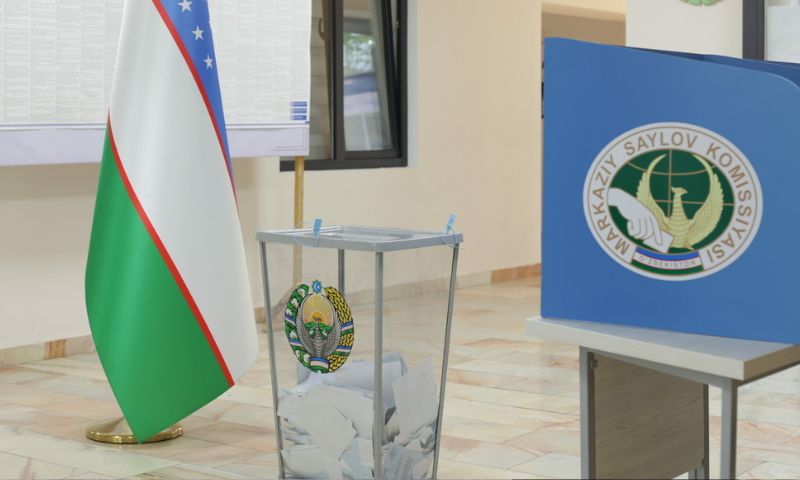TASHKENT: As Uzbekistan prepares for its parliamentary elections on October 27, the country finds itself at a pivotal moment in its democratic journey. Since gaining independence, Uzbekistan has undoubtedly made significant strides in strengthening its institutions and creating a more open and inclusive political environment. This election represents a crucial milestone, one that could bring the country closer to a more representative system of governance.
President Shavkat Mirziyoyev, who took office in 2016, has been a driving force behind these reforms. From the outset of his presidency, Mirziyoyev set ambitious goals aimed at democratizing the political system, improving governance, and enhancing civil liberties. His administration has prioritized the rule of law, judicial independence, and human rights protections—key components of a more democratic society. These reforms were designed to build a governance model where public opinion is not just heard but respected, ensuring that the government remains accountable to its people.
One of the most significant achievements in Uzbekistan’s democratic development has been the reform of its electoral processes. Transparency and fairness have become central tenets of the country’s elections, a marked improvement from the past.
Perhaps the most notable development ahead of the upcoming election is the introduction of proportional voting in the Legislative Chamber of the Oliy Majlis. This reform is aimed at giving political parties a stronger foothold and creating a more balanced representation in parliament. Of the 150 seats in the Legislative Chamber, 75 will now be allocated based on proportional voting, while the remaining 75 will continue to be filled through single-mandate districts as per the majority system. This shift is expected to foster a political landscape where more voices are heard, especially from smaller parties, and where a wider array of views can be represented in government.
By moving to a system that includes proportional representation, Uzbekistan is laying the groundwork for greater political pluralism. Smaller parties will have a fair chance of securing seats, which will in turn create a more inclusive and representative parliament. The reform is a significant step forward, showing a commitment from the government to create a more balanced and competitive political arena.
As election day approaches, the atmosphere in Uzbekistan is vibrant. Five political parties are actively campaigning for seats in the Legislative Chamber, each presenting a distinct vision for the future. Public interest in the election is high, driven by a broader sense of empowerment among citizens. Many people now feel that they have a real voice in shaping the country’s trajectory. This rising enthusiasm for participation underscores the growth of Uzbekistan’s political pluralism and signals a deeper connection between the government and its citizens.
A recent survey conducted by the Center for Progressive Reforms offers valuable insights into the electorate’s priorities and concerns. The survey, which engaged citizens through focus groups, interviews, and online polling, illustrates the increased political awareness of the population. People are not only more informed about their rights but are also more confident in expressing their opinions. The survey is a reflection of how far Uzbekistan has come. This growing political consciousness is a clear manifestation of the country’s democratic progress and bodes well for Uzbekistan’s continued evolution toward a more open and inclusive society.
Uzbekistan’s democratic advancements have not gone unnoticed on the global stage. The country has actively engaged with international organizations and welcomed foreign observers to monitor its elections, demonstrating its commitment to transparency and cooperation. For instance, deputies from the Milli Majlis, the Azerbaijani Parliament, are set to observe the upcoming parliamentary elections. This openness to international oversight signals Uzbekistan’s dedication to conducting free and fair elections and its willingness to learn from global best practices.
International organizations such as the Organization for Security and Cooperation in Europe (OSCE) have also taken note of the positive changes in Uzbekistan’s democratic landscape. The OSCE has praised the increased role of the parliament in governance and highlighted the gradual implementation of judicial reforms—both essential pillars of any functioning democracy. Experts from the German-Uzbek Friendship Society and the Institute of Political Studies at the National University of Singapore have also commended Uzbekistan’s gradual approach to democratization. These experts view the country’s methodical and systematic reforms as a potential model for other nations undergoing similar transitions.
The upcoming elections are more than just a vote—they represent a broader shift in the country’s political evolution. Uzbekistan has made significant progress in a relatively short period, with the government taking concrete steps to strengthen democratic institutions, promote the rule of law, and improve transparency in governance. These reforms have laid a solid foundation for continued progress. In many ways, this election is a testament to the resilience of the Uzbek people and their determination to build a brighter, more democratic future for generations to come.























